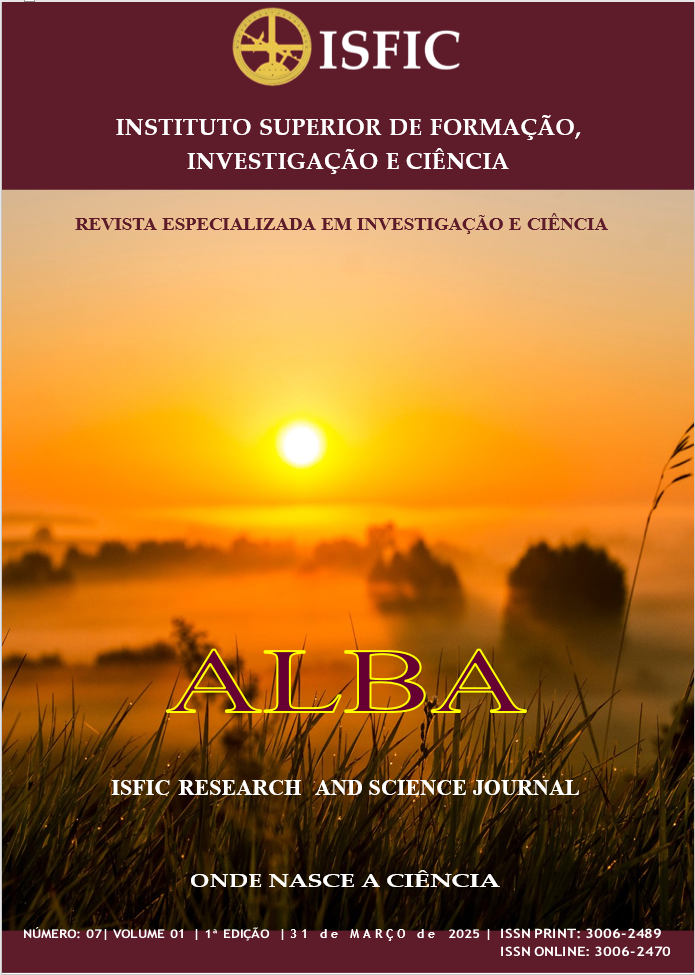A STS perspective on addressing climate emergencies
Keywords:
Environmental injustice, climate emergency, natural and artificial, society and technology, public policies.Abstract
Discussions focused on environmental injustice, especially in addressing climate emergencies, are necessary as they aim to understand the paradigms between the natural and the artificial and their relationship with society. This is considering that currently this perception is discordant, given that society has a history of intensive use of the natural environment without even considering the consequences. Such actions affect different social classes in various ways, where the upper class, with its large industries, benefits from the extraction of these resources, monetizing them through products and services, while the lower class is relegated to the labor force for these activities. The research methodology included a literature review and consultation of works by Foladori, Latour, Leff, as well as materials from IPCC and NASA. The theoretical foundation explores the relationships between the natural and the non-natural, highlighting the rupture between nature and society. The discussion addresses Latour's view of nature as a resource market, highlighting environmental degradation as a civilizational crisis. However, only the lower class is affected since they do not have the same resources and infrastructure, especially considering the possible climate events present today, such as floods, temperature rise, loss of fauna and flora, and the intensification of diseases due to climate events. Given this, this article aims to foster critical thinking about capital and its adaptation process during the environmental crises experienced.
Downloads
References
Boff, L. (2015). Ecologia: Grito da terra, grito dos pobres. Petrópolis, RJ: Editora Vozes.
Cartier, R., Barcellos, C., Hübner, C., & Porto, M. F. (2009). Vulnerabilidade social e risco ambiental: uma abordagem metodológica para avaliação de injustiça ambiental. Cadernos de Saúde Pública, 25, p. 2695-2704.
Foladori, G.; & Taks, J. (2004). Um olhar antropológico sobre a questão ambiental. Mana, 10, p 323-348.
IBGE - Instituto Brasileiro de Geografia e Estatística. Cidade e Estado. Disponível em: Paranaguá (PR) | Cidades e Estados | IBGE. Acesso em: 07 de junho de 2023
International Panel on Climate Change (IPCC). Climate Change 2023: The Physical Science Basis. Working Group II Contribution to the IPCC Sixth Assessment Report (AR6). Chapter 8: Water. Disponível em: https://www.ipcc.ch/report/ar6/wg2/chapter/chapter-8/. Acesso em: 23 de janeiro de 2023
Latour, B. (2019). Políticas da Natureza: como associar as ciências à democracia. São Paulo: Editora Unesp.
Latour, B. (2020). Onde aterrar?: como se orientar politicamente no antropoceno. Bazar do Tempo Produções e Empreendimentos Culturais LTDA.
Leff, E. (2015). Saber Ambiental: sustentabilidade, racionalidade, complexidade, poder. 11 ed. Petrópolis, RJ: Vozes.
NASA. (2023). A NASA anunciou o verão de 2023 mais quente já registrado. Disponível em: NASA anuncia verão de 2023 mais quente já registrado – Mudanças climáticas: sinais vitais do planeta. Acesso: 23 de setembro de 2023.
Ruckelshaus, W. (1932 e 2019). Ex-administrador da Agência de Proteção Ambiental dos Estados Unidos. "O meio ambiente é onde todos vivemos; e a degradação desse meio ambiente prejudica, em última análise, a todos nós." Disponível em: < https://www.politico.com/news/2019/11/27/william-ruckelshaus-first-epa-chief-dies-at-87-074237>. Acesso: 11 de dezembro de 2023
Unep - United Nations Environment Programme. (2022). Sexto Relatório de Avaliação IPCC. Disponível em: Sexto Relatório de Avaliação do IPCC: Mudança Climática | UNEP - UN Environment Programme. Acesso: 19 de julho de 2023
Vieira, E. A. (s/d). Nas trilhas de Gaia.







